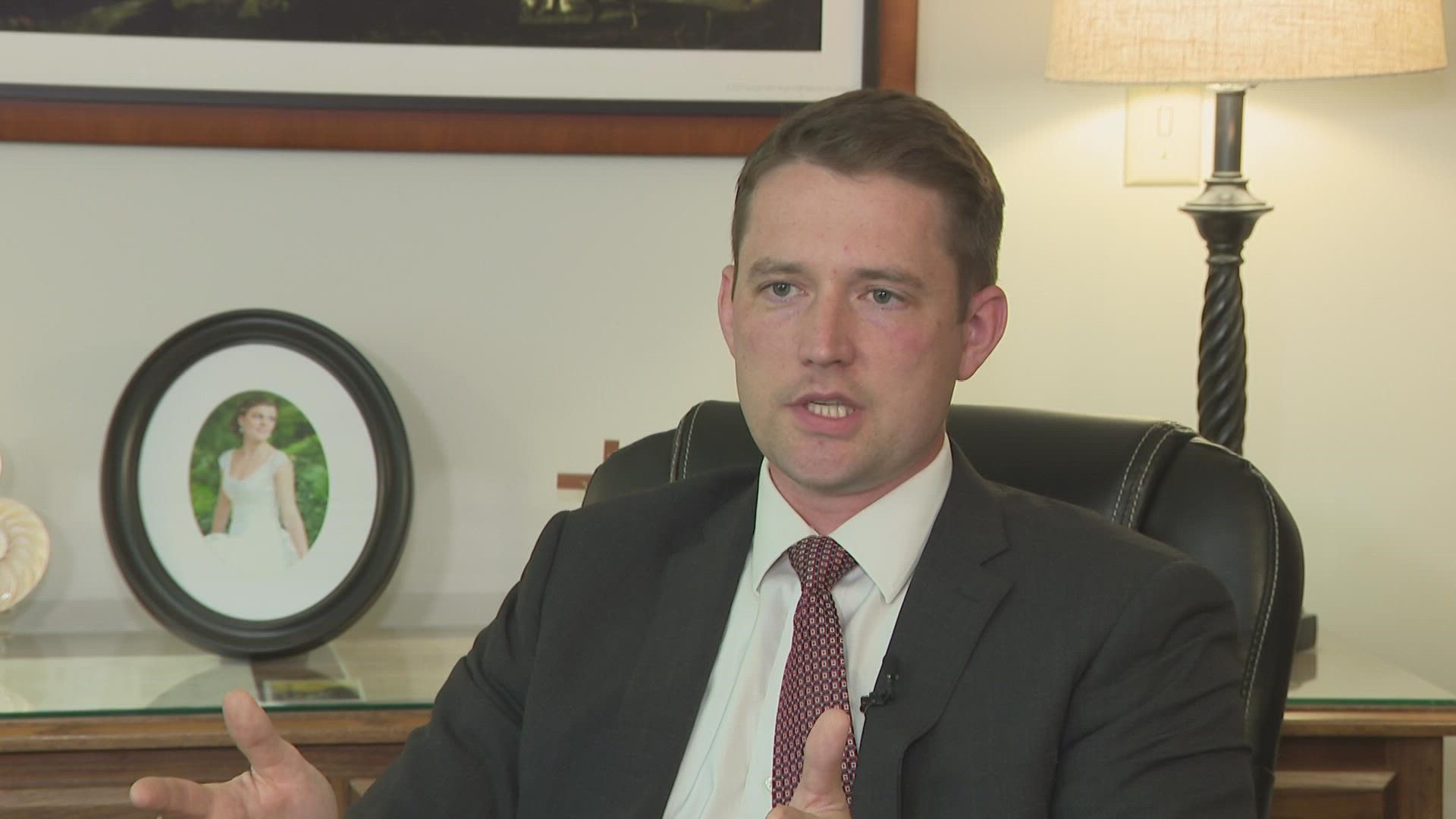EDWARDSVILLE, Illinois — Illinois will become the first state in the nation to end cash bail, through the Safe-T Act, on New Year's Day, and prosecutors have been among the loudest voices criticizing the move.
"It's a complete revolution in how we have done, historically, criminal justice in America, and especially in Illinois," Madison County State's Attorney Tom Haine said.
“The way we’ve approached criminal justice in this country needs a revolution,” Rep. Kam Buckner (D-Chicago) said. “There has been no justice at its core, no justice for victims of crime and no justice for communities. We set out to attack an antiquated and outdated system that has valued profits over people.”
The Black Caucus, which was the driving force behind passing the law in January of 2021, argued the country's criminal justice system historically and systemically targeted poor people, and people of color, and that by removing money from the bond system, prosecutors and judges could focus their detention decisions on public safety and risk assessments.
Since then, courts, prosecutors and police have evaluated ways the new system will impact their work. Most law enforcement officers have been critical of the changes, though prosecutors have also pointed to some enhancements to public safety.
Haine wrote a blistering three-page letter excoriating the upcoming changes on Tuesday. Afterwards, he sat down with 5 On Your Side for a wide-ranging interview where he vigorously defended cash bail.
"I think we should retain cash bail. But if you're gonna get rid of cash bail, have a risk assessment," Haine said.
"The elimination of cash bail isn't really about the top-level offenders," Haine said. "It's about low-level offenders. I'm a believer in the broken windows policy of prosecution. I believe that if you prosecute and punish low level offenders, while also giving them opportunities for second chances, you will prevent them from becoming higher level offenders."
Watch the full interview with Madison County State's Attorney Tom Haine below:
The law, as currently written, only allows a judge to evaluate the public safety risk of a defendant charged with a forcible felony that does not qualify for probation. If the felony qualifies for probation, the judge can only detain that defendant based on other factors, such as criminal history, violations of their terms of release or flight risk before trial.
While Republicans have highlighted which criminal defendants may be released under the new law, Democrats have highlighted which violent offenders would no longer have access to buy their way out before trial.
"The Safe-T Act is designed to keep murderers and domestic abusers, violent criminals in jail," Illinois Governor J.B. Pritzker said on Tuesday.
He said the new law addresses "the problem of the current system, which allows those people, murderers, domestic abusers and so on, to buy their way out of jail by just paying bail."
Haine also acknowledged some enhancements to public safety in the law, and clarified some of the claims in his letter, some of which were missing important context.
"This law does have one positive aspect, which is that you can detain, potentially, in a clearer way without possibility of getting out," Haine said.
RELATED: Yes, an Illinois law eliminates cash bail, but some people will still be detained before trial
Haine disagreed with criminal justice reform advocates who have argued a cash-based detention system disproportionately impacts people in poverty, and by extension, propagates systemic racism.
"I think that's a political narrative that I think is based off of an academic perspective that has no basis in reality," he said.
Cash bail, he argued, "helps prevent quick successive repeated crimes. That's why we have cash bail. That's the whole purpose. And this whole canard about this being a part of systemic racism, I think is based on an academic theory that has no basis in how this is actually being implemented."
The legislature made three changes to the law since passing it the first time and are in discussions now to modify the language to make it less confusing before it goes into effect on Jan. 1.
Pritzker said "there will continue to be" changes in the law.
"Are there changes or adjustments that need to be made? Of course," he said.
Haine prefers one of those changes should include an automatic option for detention on all felony offenses if a judge deems the defendant to be a public safety risk to the community.

